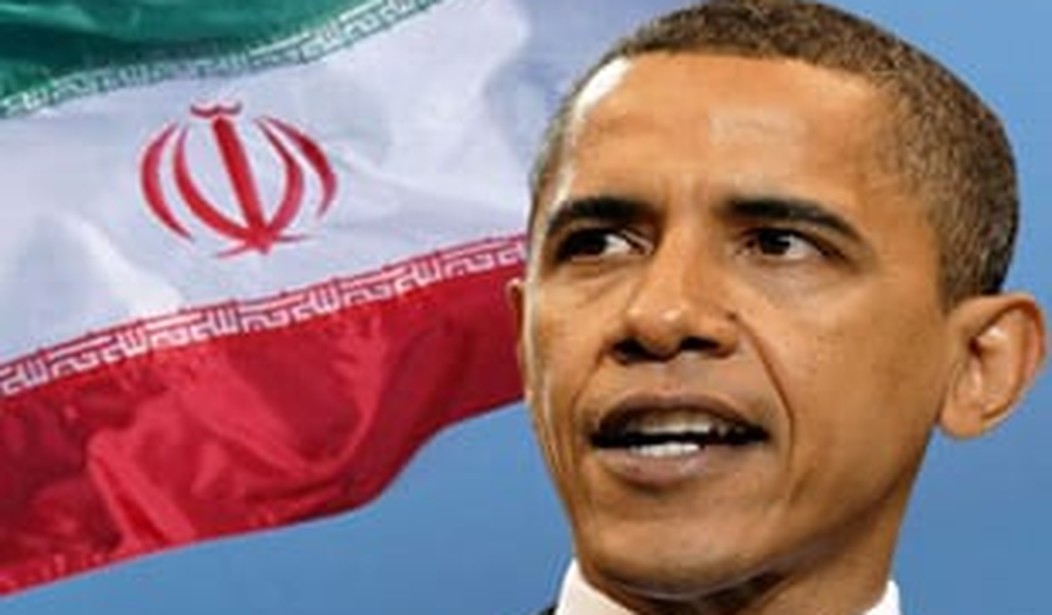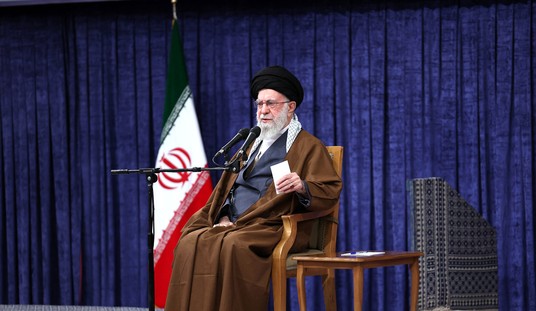WASHINGTON — The White House has tried every manner of lobbying, pressure and procedural tactics to keep Congress from moving forward on new sanctions against Iran as nuclear talks move ahead.
It didn’t work, though press secretary Jay Carney vowed that the executive branch will try to annihilate the new bill as it moves through the legislative branch.
The Nuclear Weapon Free Iran Act was introduced today by more than a quarter of the Senate. The bipartisan legislation proposes prospective sanctions against Iran’s petroleum, engineering, mining and construction sectors should the regime violate the interim Joint Plan of Action agreed to in Geneva or should Iran fail to reach a final agreement with the P5+1.
The bill was introduced by Senate Foreign Relations Committee Chairman Robert Menendez (D-N.J.) and Sen. Mark Kirk (R-Ill.), and was co-sponsored by Sens. Chuck Schumer (D-N.Y.), Lindsey Graham (R-S.C.), Ben Cardin (D-Md.), John McCain (R-Ariz.), Bob Casey (D-Pa.), Marco Rubio (R-Fla.), Chris Coons (D-Del.), John Cornyn (R-Texas), Richard Blumenthal (D-Conn.), Kelly Ayotte (R-N.H.), Mark Begich (D-Alaska), Bob Corker (R-Tenn.), Mark Pryor (D-Ark.), Susan Collins (R-Maine), Mary Landrieu (D-La.), Jerry Moran (R-Kansas), Kirsten Gillibrand (D-N.Y.), Pat Roberts (R-Kansas), Mark Warner (D-Va.), Mike Johanns (R-Neb.), Kay Hagan (D-N.C.), Ted Cruz (R-Texas), Joe Donnelly (D-Ind.), and Roy Blunt (R-Mo.).
“Current sanctions brought Iran to the negotiating table and a credible threat of future sanctions will require Iran to cooperate and act in good faith at the negotiating table,” said Menendez. “The Iranians last week blamed the administration for enforcing sanctions; now, they criticize Congress. The burden rests with Iran to negotiate in good faith and verifiably terminate its nuclear weapons program. Prospective sanctions will influence Iran’s calculus and accelerate that process toward achieving a meaningful diplomatic resolution.”
“The American people rightfully distrust Iran’s true intentions and they deserve an insurance policy to defend against Iranian deception during negotiations,” Kirk said. “This is a responsible, bipartisan bill to protect the American people from Iranian deception and I urge the Majority Leader to give the American people an up or down vote.”
Blunt stressed that the bill allowed the administration time to arrive at an agreement and verify results, but the White House has adamantly maintained that sanctions legislation of any kind would irk Iran too much and drive them away from the negotiating table.
“Despite the White House’s opposition, many of my Senate colleagues on both sides of the aisle agree that we must be more aggressive in stopping Iran from developing its nuclear weapons capabilities,” said Blunt, who is one of three senators to serve on both the defense authorizing and appropriations committees.
“If Iran has not made significant progress towards their determination that they will never pursue nuclear weapons at the end of the six-month interim period, this bipartisan legislation rightly calls for more robust sanctions.”
At today’s press briefing, Carney said “we’ve been in regular, very direct conversations with members of Congress on this subject, and have made very clear to them that we do not believe now is the time to pass any additional new sanctions through Congress.”
“With regards to this particular measure, we don’t think it will be enacted. We certainly don’t think it should be enacted,” Carney continued. “And the reason why it should not and does not need to be enacted is because if Iran does not comply with its obligations under the Joint Plan of Action, the preliminary agreement, or if Iran fails to reach agreement with the P5-plus-1 on the more comprehensive agreement over the course of six months, we are very confident that we can work with Congress to very quickly pass new, effective sanctions against Iran. And it is our view that it is very important to refrain from taking an action that would potentially disrupt the opportunity here for a diplomatic resolution of this challenge.”
“And so we don’t want to see actions that would proactively undermine American diplomacy, which is what we fear that actions like passing new sanctions — no matter how they’re structured — would be received, both by our international partners and obviously by Iran.”
Carney promised that “if it were enacted, the president would veto it.”
“The fact of the matter is this is not a debate about being for or against sanctions,” he said. “There is no president in the history of this conflict with Iran who has been more aggressive in pursuing and enacting and building international consensus around sanctions than Barack Obama.”
Iran’s Press TV ran with the veto threat as the main story on its website while calling Menendez and Kirk’s bill a “blatant move” against Obama’s request.
Iranian Foreign Minister Mohammad Javad Zarif has warned that “the entire deal is dead” if new sanctions are enacted.
“We do not like to negotiate under duress. And if Congress adopts sanctions, it shows lack of seriousness and lack of a desire to achieve a resolution on the part of the United States,” Zarif said.
Russian President Vladimir Putin even weighed in on the sanctions effort at a Thursday press conference. “I am certain that this is a counterproductive decision,” Putin said. “I hope … movements in this direction will not be a barrier to all of us moving forward toward a solution to the Iranian nuclear problem.”
Over at the State Department, John Kerry’s mouthpiece confirmed “very clearly that we strongly oppose the action taken by these members of Congress.”
“It directly contradicts the administration’s work to resolve the concerns about the Iranian nuclear program peacefully. And on top of that, we believe it’s unnecessary. This legislation does not provide the president and the negotiating team with the flexibility to reach a diplomatic agreement with Iran,” said department spokeswoman Marie Harf. “And if Congress passes this bill, which is an ‘if’ at this point, it would be proactively taking an action that would undermine American diplomacy and make a peaceful resolution to this issue less possible. I hear – we hear a lot from the Hill about how they want to resolve this peacefully. What we need to see – more than words, we need to see actions to back that up. We don’t believe this one does.”
“We’ve made very clear to members of the Senate and others why we believe this would hurt our negotiating strategy. It appears in this case with the introduction of this legislation that they’ve chosen to ignore the assessment of our negotiators and also our intelligence community, which has said that additional sanctions would make this harder,” she added.
Harf noted that Sens. Dianne Feinstein (D-Calif.), Carl Levin (D-Mich.) and Tim Johnson (D-S.D.) have all publicly said that they have “opposition to new sanctions legislation while negotiations are ongoing.” However, the strong bipartisan showing among the bill’s co-sponsors upon introduction suggests that they could sail to a veto-proof majority if it’s brought to the floor.
Over in the House, Foreign Affairs Committee Chairman Ed Royce (R-Calif.) alluded to the strong 400-20 majority that the last sanctions bill voted on in the lower chamber received.
“I welcome this bipartisan bill put forward today by Chairman Menendez and look forward to working with the Senate, should Senate leadership allow a sanctions bill to move,” Royce said. “Sanctions will continue to be critical if we are going to get a verifiable deal that stops Iran’s march to nuclear weapons.”
The bill comes after Nobel laureate and Holocaust survivor Elie Wiesel urged Congress to step up sanctions on Iran in a full-page New York Times ad.
“Our nation is morally compromised when it contemplates allowing a country calling for the destruction of the State of Israel to remain within reach of nuclear weapons,” Wiesel wrote.
“I appeal to President Obama and Congress to demand, as a condition of continued talks, the total dismantling of Iran’s nuclear infrastructure and the regime’s public and complete repudiation of all genocidal intent against Israel. And I appeal to the leaders of the United States Senate to go forward with their vote to strengthen sanctions against Iran until these conditions have been met.”
“We should & we will,” tweeted Kirk in response.









Join the conversation as a VIP Member